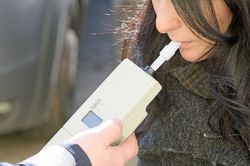DWI vs. DUI: What's the Difference Under Texas Law?

In many jurisdictions, operating a motor vehicle while under the influence of a substance is known as either DWI or DUI, and some use the terms interchangeably. Texas law, however, makes a sharp distinction between the two charges, although both can result in harsh penalties and long-term consequences for the accused. If you or a family member has been charged with this serious crime, understanding the difference is key to mounting an effective defense.
Driving While Intoxicated (DWI)
 Under Texas law, any person over the age of 21 found operating a motor vehicle with a blood alcohol content (BAC) of at least 0.08% or while under the influence of illegal drugs may be charged a DWI. Most instances are considered Class B misdemeanors, with a mandatory jail sentence of 72 hours if you have open containers in the vehicle at the time of your arrest. However, the penalties may be more severe if your BAC was over 0.15%, you caused an accident, or you had children in your vehicle at the time of your arrest.
Under Texas law, any person over the age of 21 found operating a motor vehicle with a blood alcohol content (BAC) of at least 0.08% or while under the influence of illegal drugs may be charged a DWI. Most instances are considered Class B misdemeanors, with a mandatory jail sentence of 72 hours if you have open containers in the vehicle at the time of your arrest. However, the penalties may be more severe if your BAC was over 0.15%, you caused an accident, or you had children in your vehicle at the time of your arrest.
Driving Under the Influence (DUI)
The threshold for criminal charges in Texas is much lower for minors under the legal drinking age. In Texas, drivers under the age of 21 may be charged with a DUI if they have any detectable amount of drugs or alcohol in their system at all, no matter how low the percentage may be. Even if your BAC is only 0.01%, you may be charged with a Class C misdemeanor.
If you’ve been charged with a DWI in the New Braunfels area, Ronald D. Zipp, Attorney at Law, will provide the quality legal guidance and aggressive representation you deserve. For over 40 years, this law firm has protected the rights of drivers facing a variety of criminal charges, so you can rely on their team to ensure you’re treated fairly throughout the process. Visit their website to learn more about their DWI expertise, or call (830) 629-5600 to discuss your case and schedule an initial consultation.
About the Business
Have a question? Ask the experts!
Send your question

